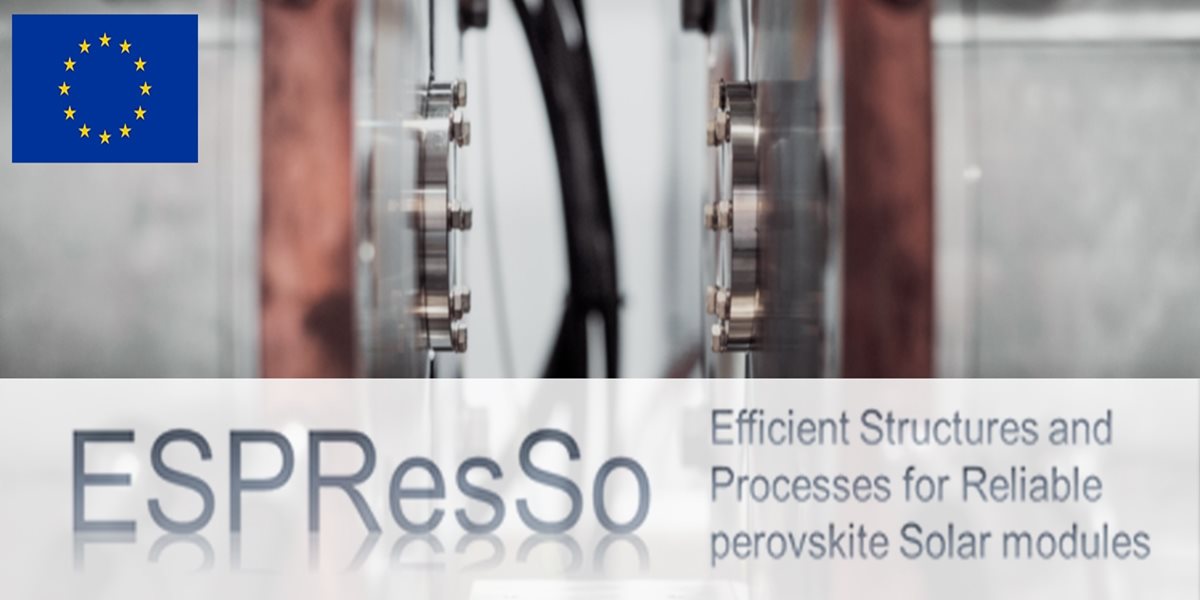
FOSS Research Centre for Sustainable Energy of the University of Cyprus has secured funding from the European Union for the project "ESPResSo - Efficient Structures and Processes for Reliable Perovskite Solar Modules" of the Horizon 2020 program package. The project is co-ordinated by Imec, a research and innovation company, part of EnergyVille's network of nanoelectronics, energy and digital technologies.
The ESPResSo project team, in addition to imec and FOSS, is made up of research and industry members such as the Ecole Polytechnique Federale de Lausanne (EPFL), the Consiglio Nazionale delle Ricerche (CNR), the Universita degli Studi di Roma Torre Vergata (UNITOV-CHOSE), Fraunhofer Institute for Solar Energy Systems ISE, CSGI (Consorzio Interuniversitario per Silappo dei Sistemi a Grande Interfase), Dycotec Materials LTD, Dyenamo AB, Corning SAS, M-Solv LTD, Saule Technologies and Onyx Solar Energy SL.
The team of ESPResSo will work for the next three years to develop a new and innovative technology of the perovskite-based solar cell (PSC) which is expected to eventually join the rapidly expanding space of the photovoltaic industry. With low-cost materials and low-temperature deposition processes, perovskite-based photovoltaic technology has the potential to conquer the market for thin-film photovoltaic panels. Perovskite solar cells already have high yields (over 22%) to compete with established thin-film photovoltaic technologies such as CIGS and cadmium telluride (CdTe). The main challenge at the moment is the transfer of perovskite photovoltaic cell technology, which has been unprecedented in recent years, from its cellular level to a scalable, stable and low-cost technology at the frame level.
The team leader, who focuses on the development of thin-film photovoltaics at imec, Mr. Tom Aernouts, states that "Every aspect of our lives from our homes to our workplace, hospitals, schools and farms depend on uninterrupted power availability. Perovskite cells are able to support global energy needs at a cost-effective cost. "
The goal of the LSE Energy Sustainability Research Unit in the project is the internal and external characterization, as well as the development of protocols to accurately measure the degradation of perovskite cells. The development of these protocols is very important for the integration of this technology in the field of the photovoltaic industry, since there are no protocols for the characterization of perovskite cell technology.